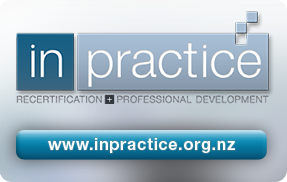Bronchiolitis Update:
Caregiver advice for bronchiolitis
 |
| This note tells you: |
|
Page in MS Word format (.doc)
Page in rich text format (.rtf)
Caregiver advice for bronchiolitis
Your child has bronchiolitis. This is very common in children under one-year-old and is caused by a virus. Bronchiolitis can usually be managed safely at home
- What to expect and how you can help your child
You can expect your child to get a lot better after the first three days, although their cough may linger for several weeks.
Medicines are not helpful for children with bronchiolitis but you can help keep your child comfortable by:- Offering small feeds of breast milk or infant formula regularly
- Keeping your baby warm but not too hot
- Giving your baby as much rest as possible
- Don’t smoke in the house or around your baby
- Keeping your baby’s nose clear. If it is blocked or crusty you can use saline nose drops (from a pharmacy)
- Keeping your baby away from other children so as not to spread the disease
- When should I seek help?
You can expect your child to improve so you should get urgent advice from a doctor or nurse if they get worse. Any one of the following may be a sign of the illness getting worse:- Breathing fast, has noisy breathing and is having to use extra effort to breathe
- Looking unwell and/or very pale
- Taking less than half of their normal feeds
- Vomiting
- Has not wet a nappy for six hours
- Danger signals
The following are danger signs. Dial 111 or contact a doctor immediately if your child has any of the following:- Blue lips and tongue
- Severe difficulty breathing
- Is becoming less responsive
- Is pale
- Is floppy
- Periods of stopping breathing
Healthline is available for free, confidential health advice 24 hours a dayHealthline nurses do not diagnose over the phone but will assess the situation and provide advice as to the best course of action. Call 0800 611 116 from either a landline or a mobile phone. Your child may need a further check up Your Doctor or Nurse may want to check your child even if things appear to be going as expected. If you have been advised to have a check up, write the details here: For more information visit: www.kidshealth.org.nz |
